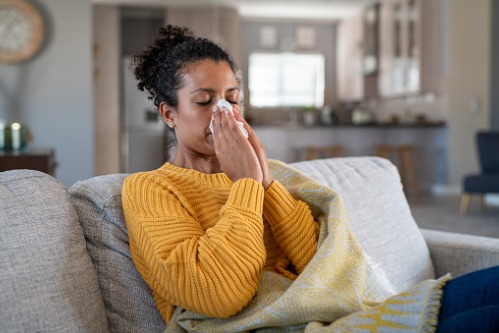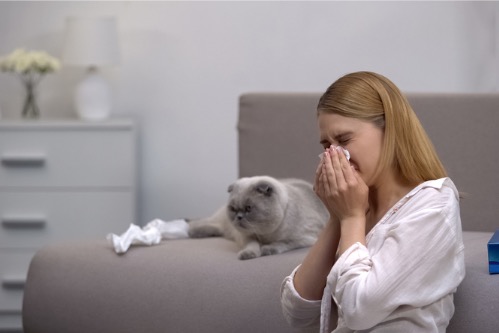
5 Ways to Ease Allergy Symptoms Naturally
If you’re one of the millions of Americans suffering from allergies, you know how miserable they can make you feel. From constant sneezing to itchy, watery eyes, allergy symptoms can make it tough to get through the day. Allergy medications can make a big difference help, but natural methods are a helpful addition.
How to Naturally Treat Allergy Symptoms
There are a variety of natural ways that could help to reduce your allergy symptoms. Some people find that a combination of treatments works best for them. Not everyone experiences the same degree of relief from natural allergy treatments. Therefore, you may want to try a few different approaches to find the right fit. If you’re looking for natural allergy relief, consider trying one of these methods:
1. Try a Saline Rinse
Saline rinses are a great way to flush allergens out of your nasal passages and remove excess mucus. Many saline rinses can be found at your local pharmacy. Be cautious when making your own saline solution, as tap water and homemade saline rinses may contain bacteria that could lead to infection. To use a saline rinse, fill a neti pot with the saline solution, tilt your head to one side, and pour it into one nostril. Allow the solution to drain out of the other nostril. Then repeat on the opposite side.
2. Use Steam
Rhinitis, or inflammation of the nasal passages, is a common symptom of allergies. Steam may help open up your nasal passages, ease congestion and stop a runny nose. You can generate steam by taking a hot shower, using a humidifier or boiling water on the stove and inhaling the steam through your nose.
3. Avoid Triggers
Understanding and avoiding your allergy triggers may be one of the most effective ways to treat your allergy symptoms. Allergies are often triggered by airborne particles like pollen, dust mites, and pet dander. Seasonal allergies are most commonly triggered by pollen from trees, weeds, and grasses. If you’re allergic to these particles, spending time outdoors may worsen your symptoms.
To avoid your allergen triggers, stay indoors on days when the pollen count is high and keep windows and doors closed. If you must go outside, wear a dust mask and avoid mowing the lawn or spending time in areas with tall grasses and weeds.
Wearing allergy-protective clothing such as a wide-brimmed hat, long-sleeved shirt, and sunglasses may also help keep pollen away from your skin and eyes. If you’re allergic to pet dander, keep your pets out of your bedroom and regularly vacuum and dust your home. It may take some trial and error to determine your specific triggers. Once you know what they are, avoiding them as much as possible may minimize your allergy symptoms.
4. Drink Plenty of Fluids
Staying hydrated is essential for everyone, but it’s especially crucial if you have allergies. Allergies may cause your nose and eyes to run, which can lead to dehydration. Drinking plenty of fluids helps to keep your nasal passages moist and prevents them from drying out. It also helps to thin out mucus which makes it easier to blow your nose. Water is always a good choice, but you can also drink juices, herbal teas, and warm soups. Avoid caffeine, alcohol, and sugary drinks like soda, as these may cause dehydration and further aggravate your symptoms.
5. Use a Cold Compress
If your allergy symptoms are particularly bothersome, a cold compress may help to ease the irritation. Placing a cold compress on your forehead, cheeks, or sinuses may help reduce swelling, itchy eyes, and a runny nose. You can make a cold compress by wrapping ice in a clean cloth or soaking a cloth in cold water. Use the compress for 10-15 minutes at a time and repeat as needed. Avoid putting the ice directly on your skin, as this may cause frostbite.
Treat Your Allergy Symptoms With Northeast Allergy
At Northeast Allergy, Asthma & Immunology, we pride ourselves on providing individualized, compassionate care to our patients. We understand that living with allergies can be difficult, and we are here to help. Our team of experienced allergists and immunologists offers a full range of allergy testing and treatment options to help you put an end to your allergy symptoms. If you’re ready to take control of your allergies, contact us today to schedule an appointment.



